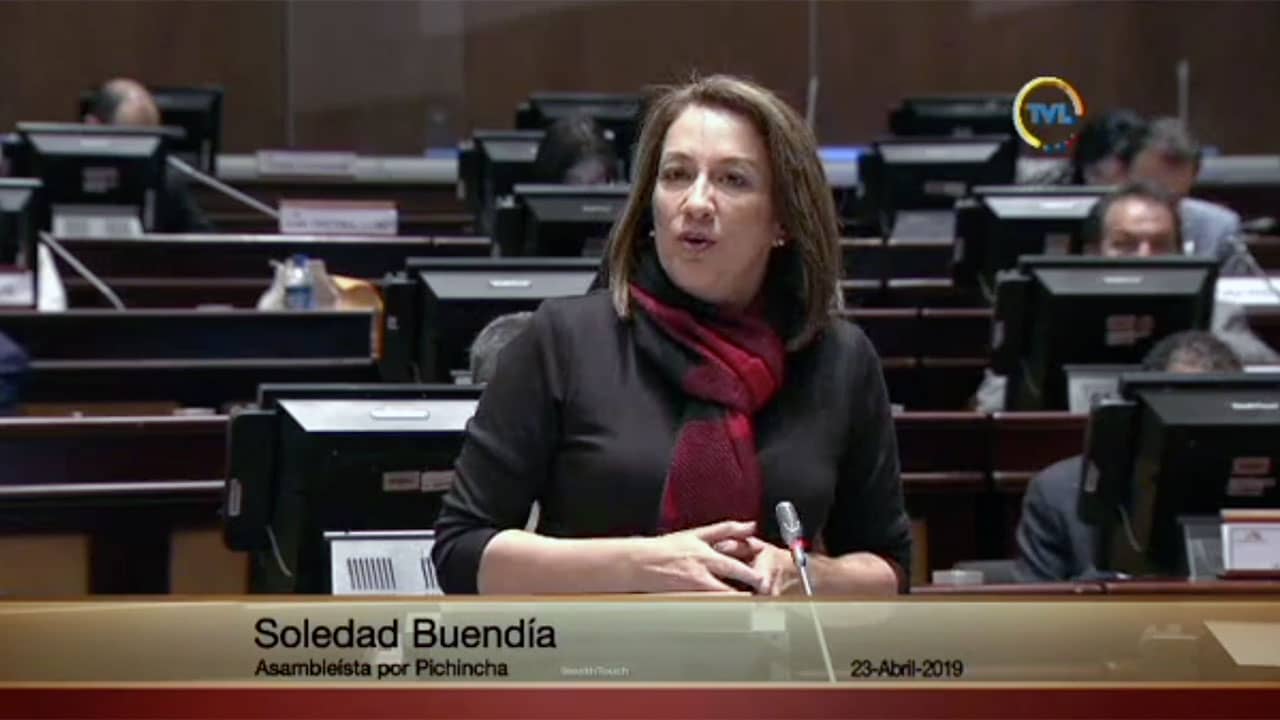
New York/Quito, 23 April 2019 – Today, the National Assembly of Ecuador achieved a significant step in the global fight for the rule of law and against impunity by approving the ratification of the Kampala Amendments to the Rome Statute of the International Criminal Court (ICC of the Court) on the crime of aggression. Ecuador became the 38th State to ratify the Amendments and the 7th Latin American State to do so, joining regional neighbors Argentina, Chile, Costa Rica, El Salvador, Paraguay, and Uruguay. Ratification sends a clear message of Ecuador’s support for the rights of every person to live in peace and dignity, within the framework of the Rule of Law.
The Significance of Ratifying the Kampala Amendments on the Crime of Aggression
As noted by the Coalition for the International Criminal Court (CICC) Regional Coordinator for the Americas, Michelle Reyes, the crime of aggression was already included in the Ecuadorian Comprehensive Criminal Organic Code as of 2014. However, the National Assembly’s approval of ratification achieves two important goals: first, following the activation of the jurisdiction of the ICC over the crime of aggression on 17 July 2018, ratifying increases the likelihood of Ecuador receiving ICC protection as a court of last resort against an act of aggression by another State. Second, ratification sends a clear message to the international community of Ecuador’s public commitment to international peace and accountability for international crimes and reaffirms that Latin America remains at the forefront of the rule of law.
By ratifying the crime of aggression, States serve their national interests to deter the illegal use of force. The Court can investigate and prosecute the crimes of aggression referred by the United Nations Security Council, regardless of whether the States involved have accepted the jurisdiction of the Court in this regard. Additionally, States that ratify also may benefit from the deterring influence of the Court—even if the Security Council does not refer a situation to the Court (Article 15 bis).
The Road to Ratification: PGA Leadership in Ecuador
Within the framework of its Campaign for the Rome Statute of the ICC, Parliamentarians for Global Action (PGA) has been actively working with its members in Latin American countries for many years. The adoption of all Rome Statute crimes in the revised Organic Criminal Code is the culmination of a project led by parliamentarians who attended the PGA Montevideo Technical Round Tables in 2013 and 2014. The below timeline illustrates the journey that has most recently culminated in Ecuador’s ratification of the Kampala amendments:
-
September 2012: At regional parliamentary seminars in Montevideo, Uruguay, on the universality and the implementation of the Rome Statute, PGA provides a space for legislators, experts, governments and civil society organizations to discuss best practices in the fields of international criminal law, strengthening the Rule of Law, the protection of human rights, and sustainable development.
-
2013-2014: A series of workshops focused on the full implementation of the Rome Statute triggers PGA members’ leadership efforts. A gathering of members of the Justice and Foreign Affairs Committees of the National Assembly of Ecuador, representatives of the Ministry of Foreign Affairs and academia, aims at strengthening legislative efforts undertaken at the national level to ensure the effective implementation of the Rome Statute and the ratification of the Kampala Amendments. The Roundtables provide a space for the discussion and analysis of these instruments, particularly relevant for the promotion and maintenance of peace and security in Ecuador and around the world.
-
January 2014: Legislators complete deliberations on the Organic and Integral Penal Code (COIP), in which the domestic implementation of the Rome Statute crimes was amended by PGA Members to include, inter alia, extermination, slavery, forced displacement, extrajudicial execution and aggression (thereby implementing the crime of aggression was implemented several years ahead of the ratification of the Kampala Amendments) [1]. The debates on the Organic Criminal Code in the Justice committee address important technical aspects of the substantive and procedural implementation of the Rome Statute at the national level as well key points connected to the ratification of the Kampala Amendments on the crime of aggression and the use of certain weapons in armed conflict.
-
October 2018: During the Sub-Regional Parliamentary Seminar on the Universality and Implementation of the Rome Statute: A Fundamental Tool to Strengthen the Rule of Law and Sustainable Development in Inclusive and Peaceful Societies, hosted by the National Congress of Honduras on 18 and 19 October 2018, Asambleísta Marcela Aguiñaga Vallejo, President of the Justice and State Structure Commission of the National Assembly of Ecuador and PGA member, informs the audience on the progress of the implementation of the Rome Statute in her country.
-
January 2019: Sixteen members of the National Assembly of Ecuador, chaired by Asambleísta Soledad Buendía, form a national group of Parliamentarians for Global Action (PGA). Seeking to make use of their political and legislative prerogatives to contribute to a more equitable, safe, and democratic world, they make the issue of the ratification of the Kampala Amendments a legislative priority.
-
March 2019: Following a series of hearings with international law experts to inform their deliberations, on 19 March 2019, the Commission on Sovereignty, Integration, International Relations, and Integral Security of the National Assembly of Ecuador, under the leadership of PGA member Asambleísta Esther Cuesta Santana, unanimously approves the draft report on the ratification of the Kampala Amendments on the crime of aggression (with seven votes in favor).
-
April 2019: Today, 23 April 2019, the report is presented for approval to the plenary by Asambleísta Mauricio Zambrano, member of the Parliamentary Caucus of the Citizen Revolution.
Footnotes:
1. The Constitutional Court of Ecuador has delivered a favorable opinion on the Kampala amendments. However, despite great advances, gaps remain in the classification of certain criminal acts. These lacunae currently are being analyzed as part of the process of reform of the Comprehensive Criminal Organic Code to fully align the domestic law with international instruments.
